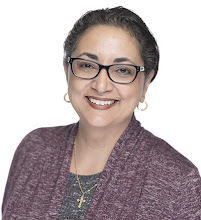Dutch Law Grad Gains Infamy With E-Mail
Since distance education is high on my priority list, this particular story caught my eye, not so much because the misdirected email was forwarded along, but because of the continuing implicit assumption that similar oral communications do not occur and are not also similarly relayed-- worse yet, inaccurately.
AP via Yahoo reporting on what might be an innocuous email faux pas by American standards.
One need not look far in the blogosphere to find rants from law students all over the country, some more courageous than others in actually identifying themselves. With so much of our communication digitized and relayed in one form or another over common networks, how much of what we say and do can be conveniently hidden any more? The student's comments don't sound much different from what I would expect to hear through the grapevine, anyway, so why would anyone be surprised to see it in writing? Perhaps it goes to the root of the public's perception of lawyer's honesty and ethics - don't put anything in writing you might want to deny later.
A George Will quote one of our law profs likes to include with his signature:
As a proponent of distance education, one of the biggest hurdles I see, particularly in the law school setting, is promoting the "uncircumscribed intellectual exploration" on very difficult topics, e.g., freedom of religion, in a digital environment where the recording is implied. Who's going to play devil's advocate and make the provocative statements or pose the provocative questions to get students to exercise their analytical skills when the entire exchange is recorded verbatim for posterity to review? Will anyone who reads the exchange out of context recognize it for what it is? How can we encourage students to engage in these kinds of conversations in an environment that is supposed to foster and develop critical thinking skills when the threat of future retribution looms in stories like the one above? If a child is blogging now for the whole world to see, should his parents be concerned that those posts might be used against him 5, 10, or 20 years from now when he embarks on a new career? Should we think any better of those who post anonymously?
In the context of non-privileged communications, which is more important: knowing the truth or being able to hide it?
While you're mulling that over, take a look at www.blawg.org...
[UPDATE] Wired story: Next Gen Weighs a 'Secure' Future
This post featured in Blawg Review #3
Rate this post: AP via Yahoo reporting on what might be an innocuous email faux pas by American standards.
Reinder Eekhof, a freshly minted lawyer, recently wrote in an e-mail that he had "finally finished this stupid education," and was "now looking for someone crazy enough to dump a suitcase full of money in my lap every month." ***
Eekhof mistyped the address and his missive landed in the inbox of someone in the communications department instead.
That person forwarded it, and soon the e-mail was being read at law firms across the Netherlands.
One need not look far in the blogosphere to find rants from law students all over the country, some more courageous than others in actually identifying themselves. With so much of our communication digitized and relayed in one form or another over common networks, how much of what we say and do can be conveniently hidden any more? The student's comments don't sound much different from what I would expect to hear through the grapevine, anyway, so why would anyone be surprised to see it in writing? Perhaps it goes to the root of the public's perception of lawyer's honesty and ethics - don't put anything in writing you might want to deny later.
A George Will quote one of our law profs likes to include with his signature:
He thought he was speaking in a place that encourages uncircumscribed intellectual explorations. He was not. He was on a university campus.
As a proponent of distance education, one of the biggest hurdles I see, particularly in the law school setting, is promoting the "uncircumscribed intellectual exploration" on very difficult topics, e.g., freedom of religion, in a digital environment where the recording is implied. Who's going to play devil's advocate and make the provocative statements or pose the provocative questions to get students to exercise their analytical skills when the entire exchange is recorded verbatim for posterity to review? Will anyone who reads the exchange out of context recognize it for what it is? How can we encourage students to engage in these kinds of conversations in an environment that is supposed to foster and develop critical thinking skills when the threat of future retribution looms in stories like the one above? If a child is blogging now for the whole world to see, should his parents be concerned that those posts might be used against him 5, 10, or 20 years from now when he embarks on a new career? Should we think any better of those who post anonymously?
In the context of non-privileged communications, which is more important: knowing the truth or being able to hide it?
While you're mulling that over, take a look at www.blawg.org...
[UPDATE] Wired story: Next Gen Weighs a 'Secure' Future
This post featured in Blawg Review #3
(data provided from NewsGator Online)


0 Comments:
Post a Comment
<< Home